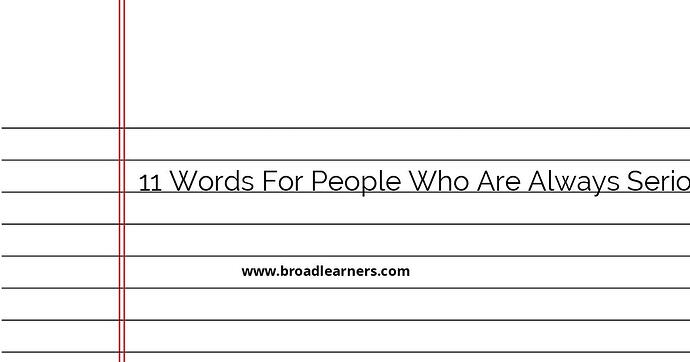When it comes to personality traits, some people are just naturally more serious than others. They tend to take things seriously, rarely cracking a smile or engaging in lighthearted banter. If you're looking for the right words to describe these individuals, here are 11 options:
- Stoic - Someone who is stoic remains calm and unaffected in the face of adversity or difficulty. They rarely show emotions and maintain a serious demeanor.
- Reserved - This term describes someone who is quiet, introverted, and tends to keep to themselves. They may come across as serious because they don't readily share their thoughts and feelings.
- Serious-minded - A serious-minded person is focused and thoughtful. They prioritize work and responsibilities over leisure and fun.
- Grave - This adjective describes someone who is solemn, serious, and often appears sad or thoughtful.
- Pragmatic - A pragmatic person is practical and level-headed. They approach situations with a serious and logical mindset.
- Solemn - Similar to grave, solemn describes someone who is serious and grave in demeanor. They may be seen as pensive or contemplative.
- No-nonsense - This term refers to someone who is practical, efficient, and serious about getting things done. They don't tolerate frivolity or wasting time.
- Austere - An austere person is strict, serious, and often has high standards. They may come across as rigid and unemotional.
- Dour - Dour describes someone who is stern, gloomy, and serious in appearance and demeanor. They rarely smile or show signs of happiness.
- Intense - An intense person is serious and focused, often displaying strong emotions and a high level of concentration.
- Somber - Similar to grave and solemn, somber describes someone who is serious, sober, and often appears sad or melancholy.
These words can help you accurately describe someone who is always serious. However, it's important to remember that individuals are complex and may exhibit a range of emotions and behaviors in different situations.
Did I miss anything? Respond below
